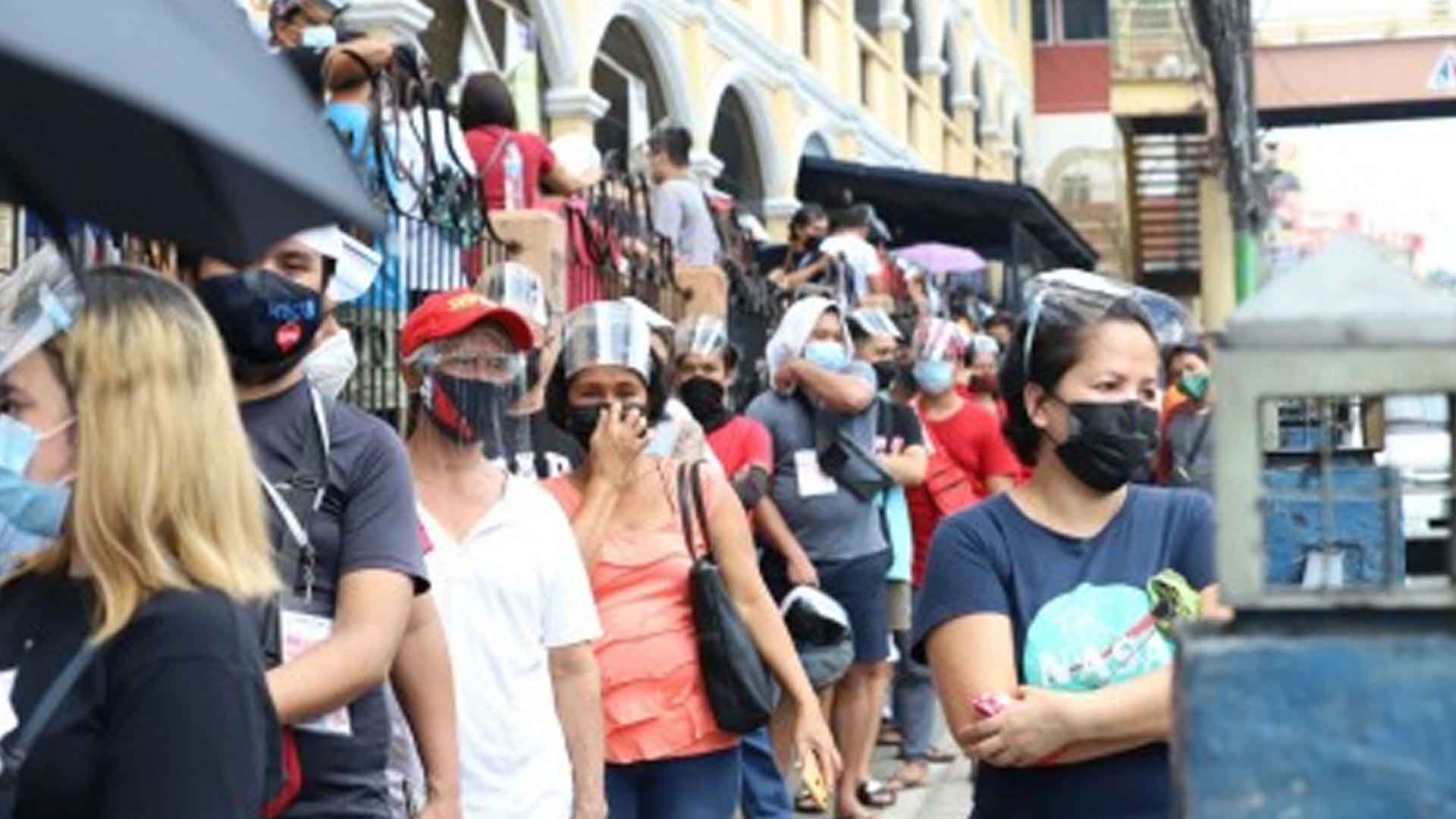The number of new Covid-19 cases in the National Capital Region and 38 other areas under Alert Level 1 continues to go down, an OCTA Research Group fellow said Monday.
Since the group’s prediction of less than 1,000 new cases by March, Dr. Guido David noted that the numbers might continue to decrease to a few hundred at the end of the month.
“Medyo nag-slow down, pero bumababa pa rin, ‘yun ang mahalaga (It has slowed down, but it’s still going down, that’s the important thing),” David said in a televised public briefing. “About 300 to 500 [new cases] tulad ng nakita natin December last year bago pumasok ang taon na ito (just like what we’ve seen in December last year before this year entered.”
The slow downward trend in the Covid-19 numbers could be attributed to decreased vaccination data and population protection, he added.
To continue the decrease in cases, the group said the public must continue adhering to minimum public health standards.
“Baka nagiging kampante pa rin ‘yung iba nating mga kababayan. At least, ‘yung pagsuot ng face mask, ito ay napakahalaga, napakalaking tulong ito para maalis ‘yung (Maybe, some of our fellowmen are being complacent. At least, wear a face mask because this is very important to eliminate the) infection,” David said, warning that the coronavirus is causing a rise in cases in other Southeast Asian nations.
He said there could be more areas that are qualified to deescalate to Alert Level 1 considering the low number of new cases and healthcare utilization rate nationwide.
However, there are areas with very low vaccine coverage, one of the metrics used by the Inter-Agency Task Force for the Management of Emerging Infectious Diseases and the Department of Health in the Alert Level System classification.
“Sana patuloy yung pagpapabakuna, isa rin ‘yan paraan para ma-protect tayo sa spike in cases kase ‘yung immunity bumababa rin over time kahit na-vaccinate na tayo o na-expose tayo kaya maganda pa rin mapa-booster mga kababayan natin for additional layer of protection (I hope people will decide to get vaccinated, it’s for us to be protected against a spike in cases because our immunity level decreases over time after being fully vaccinated or exposed. It’s best that we receive booster shots for additional layer of protection),” David said.
As of March 5, the National Covid-19 Vaccination Dashboard showed that a total of 135,929,478 doses have been administered.
Of the total doses, about 10,518,413 were given as booster shots.
Despite the decline in coronavirus cases, the Department of Labor and Employment (DOLE) reminded anew both employers and employees of the strict observance of health protocols inside workplaces under the most relaxed Alert Level 1.
“The face mask will still be worn whether indoors or outdoors and the ventilation in closed spaces should also be complied with, and the vaccinations. The most important thing, we already know that and we have the mindset to wear a mask, your ventilation, especially when we enter the office and it is considered a closed space, if you have windows especially, you can open them so that your airflow is good,” Labor Assistant Secretary Ma. Teresita Cucueco said in a Laging Handa briefing.
Cucueco added that the policy requiring unvaccinated on-site workers to submit negative reverse transcription-polymerase chain reaction (RT-PCR) test results every two weeks remains in effect. (PNA)






















